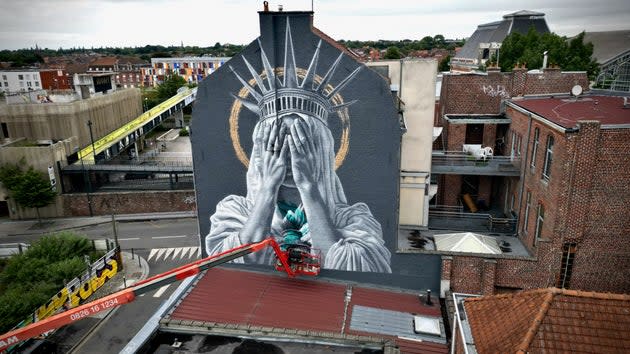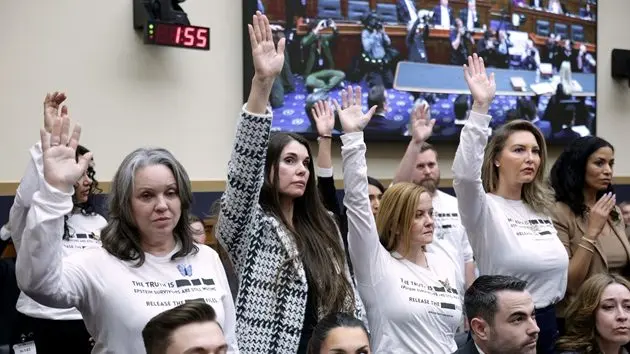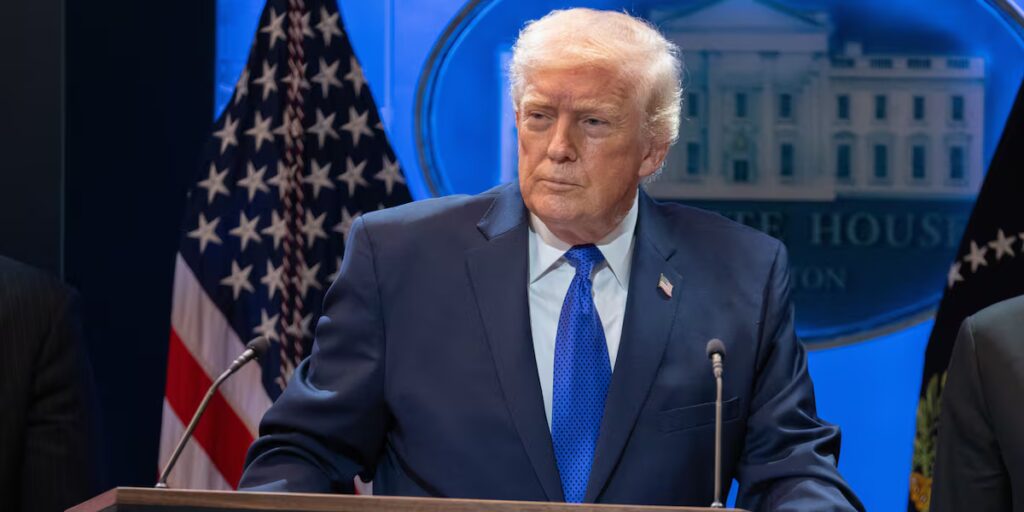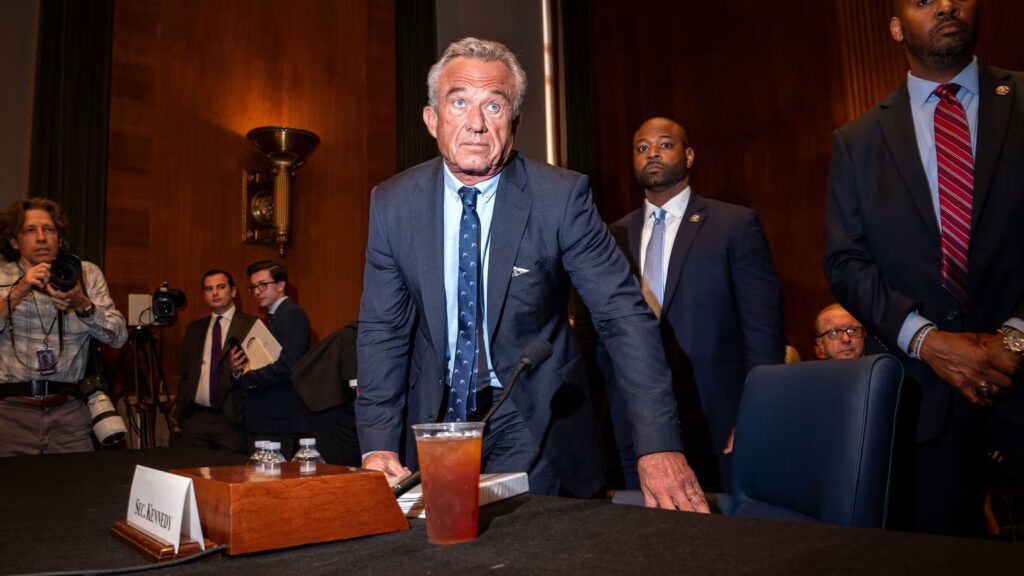Statue of Liberty Mural Criticizing MAGA Goes Viral

“I stand by what I’ve done,” Judith de Leeuw defiantly told HuffPost amid backlash from Trump loyalists, including one GOP lawmaker who said the piece “disgusts me.”

The Statue of Liberty covers her face with her hands ― in shame, sorrow and horror ― in a new politically charged street art mural that has been painted in northern France and that President Donald Trump’s MAGA supporters are melting down over.
Netherlands-based artist Judith de Leeuw — aka JDL street art — painted the piece in Roubaix last week.
“I created this piece because my heart breaks when I look at the state of the world today,” de Leeuw told HuffPost. “I’m deeply concerned — not only about the fragile friendship between the EU and the U.S. but also about the cruelty of current immigration policies. As an artist, I feel a moral obligation to speak up when the world is in pain. This work is my voice.”

Netherlands-based artist Judith de Leeuw painted the Statue of Liberty piece in Roubaix, France.
De Leeuw admitted she’d been stunned by just how many millions of people have now seen images of her latest work online, and by the backlash from Trump voters.
Rep. Tim Burchett (R-Tenn.) commented on X, formerly Twitter, that the piece “disgusts me.” “If any country ought to be kissing our ass it’s France. My Uncle Roy fought and died and is buried there for their freedom,” he wrote.
The controversial Libs Of TikTok account, meanwhile, said the “artist has a sad case of TDS,” or so-called Trump Derangement Syndrome.
But de Leeuw said she is unrepentant.
“I stand by what I’ve done. In a world that feels increasingly unjust, I believe activism is not a choice, but a duty,” she told HuffPost.
Of the meaning of the piece, she explained: “The original Statue of Liberty was a gift from France to the U.S., a symbol that everyone should be free: free to exist, free to be themselves. But today, we have to ask: ‘Is that still true?’”

The artwork has generated backlash from Donald Trump supporters.
The Trump administration’s ongoing immigration crackdown was a particular spur to action, she said, noting she could not “witness this kind of injustice without responding.”
“I was raised in a Moroccan neighborhood in Amsterdam and later lived in a predominantly African and Surinamese district,” she recalled. “Amsterdam is one of the most multicultural cities in the world, and I’ve always considered that diversity a gift — it fills our streets with color, culture and joy. Roubaix, too, has one of the highest immigrant populations in France. We share that experience, that understanding.”
De Leeuw acknowledged that her political art may now make it difficult to travel to America.
“I may never be allowed into the U.S. again,” she said.
“Instagram has already warned me that my account could be removed,” she continued. “I’ve also heard that I may lose commissions because of this. But if that’s the price for doing what I believe is right, then so be it.”
“When friends ask me whether it was wise to make this move, I always say,
‘If I had been Adolf Hitler’s best friend, I might’ve been a millionaire by 1940. But what would that say about me?’” she added.
: 267







